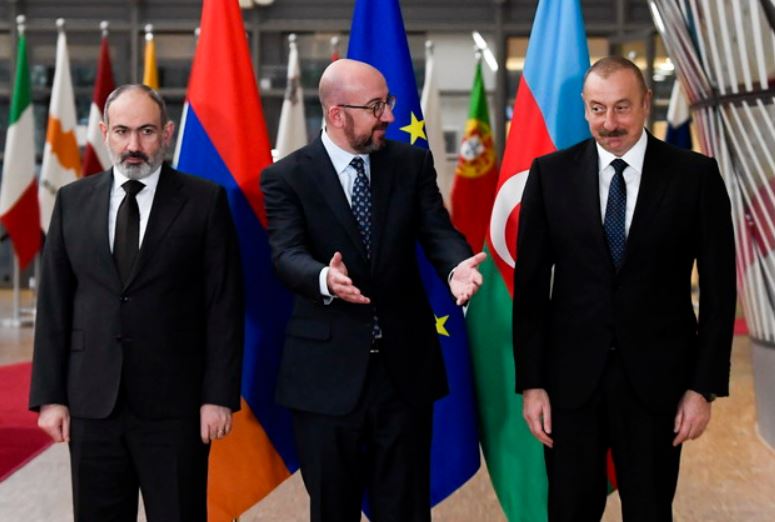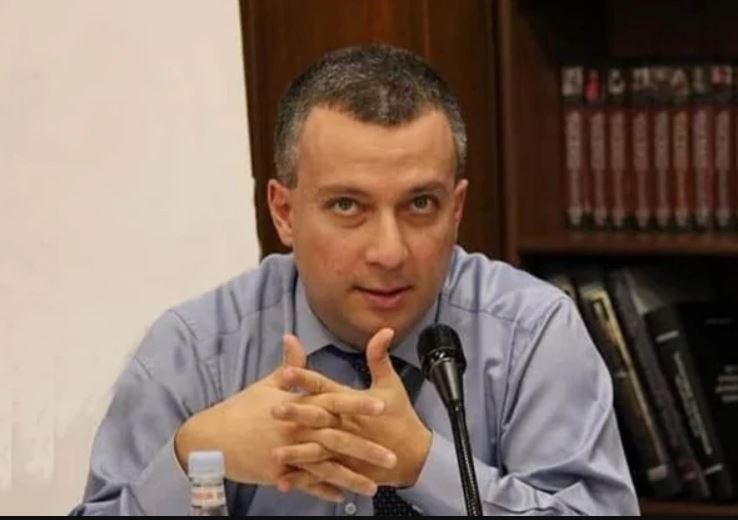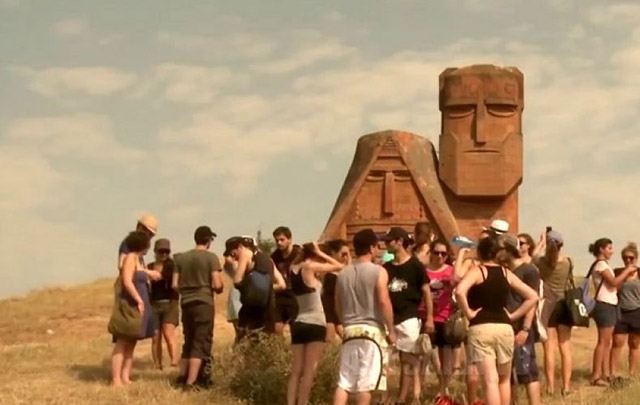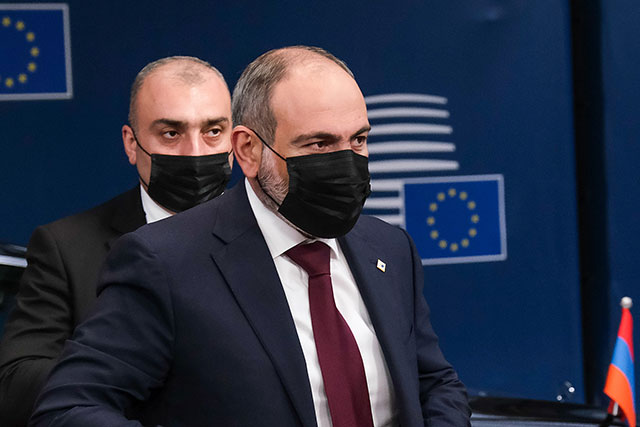The statement on the topic of unblocking the communication channels is vague. There is no specificity, which gives grounds to mention the statements of the Azerbaijani side that if Armenia does not provide a “corridor” through the Syunik region without customs-passport control, then Azerbaijan considers it a violation of the November 9 document and it rejects the unblocking, prefers to establish a connection with Nakhichevan through the territory of Iran.
“We can say that there is a certain freeze on the issue of unblocking the means of communication,” said political scientist Benjamin Poghosyan, referring to the announcement of the results of the Nikol Pashinyan-Ilham Aliyev meeting held in Brussels on April 8 during an online discussion at the Article 3 Press Club. In connection with the start of preparations for the Armenia-Azerbaijan peace agreement, he noted, “We all understand that those steps have already started, there is no news. A de facto new gauge is launched, one level below the heads of state. I mean the meeting of Aliyev’s advisor and the Secretary of the Security Council of the Republic of Armenia. As far as I understand, this measurement will be regular.”
According to the political scientist, the only agreement stipulated in the statement is the establishment of a commission on demarcation by the end of April. “I am not sure that it will happen. Earlier, the Russian president said that the mechanisms would be fixed by the end of December. The deadline has passed, and nothing has been fixed. I will not be surprised if that commission does not exist at the end of April.”
Read also
Benjamin Poghosyan advised the authorities to be careful about the preparation of the peace agreement. “Such an agreement is signed between the states that were at war. Armenia and Azerbaijan have never declared war on each other, but when Armenia says it is ready to sign a peace agreement with Azerbaijan, it means it admits that it was at war with Azerbaijan. If there was a war, let us note that the Artsakh movement that started in 1988, which was a matter of self-determination, not a RA-Azerbaijan territorial dispute, may collapse. If there was a war, then Armenia and Azerbaijan fought over certain territories, at one stage Armenia won, at another Azerbaijan, and the parties decided that’s not one war, negotiate, and sign a peace treaty. I have a hard time imagining that in that agreement it will be possible to fix the Artsakh Republic as an independent state, even within its current borders. The government should consider whether there is a need to talk about the Armenia-Azerbaijan peace agreement from the point of view of international law. Nobody disputes the fact that there should be a demarcation, but for that the states do not have to sign a peace treaty.”
According to Poghosyan, the establishment of the demarcation and delimitation commission and the process itself is different. It can even take decades. “There is an unresolved issue․ On the basis of what maps will it be implemented? There is no agreement even on this issue, which is important. During this period, Azerbaijan’s working style is clear – to use possible methods to get the Armenians of Artsakh to leave as much as possible, which will affect any further negotiation process, especially the provision of Artsakh’s status. Therefore, the attention of the Armenians and the political forces should be focused on the question of how to prevent the number of the Armenians of Artsakh from decreasing.”
Luiza Sukiasyan




























































